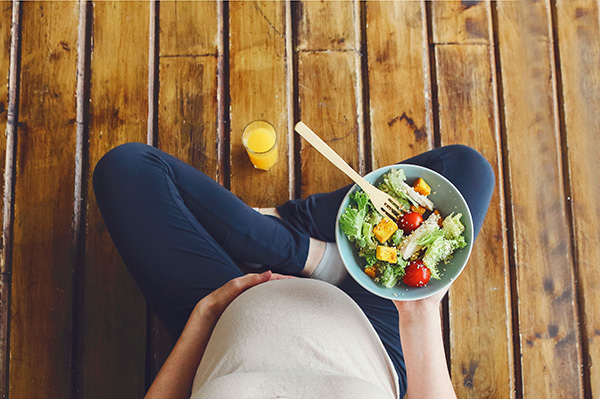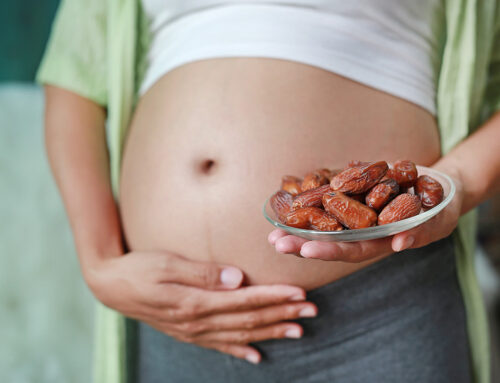Nourishing for Two: A Guide to Optimal Nutrition for Expectant Mothers Planning a Natural Birth
Diving into the world of motherhood is like stepping into a realm of wonder, where every day brings a little more excitement, a tad more love, and heaps of cherished memories in the making. For expectant mothers who have chosen to give birth naturally, often with the support of a midwifery team, considering the optimal diet is a crucial part of this preparation. A balanced, nutrient-rich diet can not only support a healthy pregnancy but can also prime the body for the physical demands of natural childbirth.
Understanding Nutritional Needs
During pregnancy, the body requires additional nutrients, vitamins, and minerals. An increase in certain nutrients, such as folic acid, iron, calcium, and protein, is essential. These contribute to the baby’s growth and development and support the mother’s health and wellbeing. A diet lacking in key nutrients can lead to complications such as premature birth, low birth weight, and developmental problems.

Folic Acid and Pregnancy
Folic acid, a B vitamin, helps prevent neural tube defects in the developing baby. It is recommended that women take a daily supplement of 400 to 800 micrograms of folic acid in addition to consuming foods rich in folate (the natural form of folic acid), such as leafy green vegetables, citrus fruits, beans, and fortified cereals.
Iron’s Crucial Role
Iron is vital for making hemoglobin, the protein in red blood cells that carries oxygen to other cells. During pregnancy, your blood volume increases, requiring more iron to support the baby’s development and placental needs. Foods rich in iron include lean meats, poultry, fish, cooked beans, and fortified cereals. Pairing these with foods high in vitamin C, like oranges or tomatoes, can enhance iron absorption.
Calcium for Two
Calcium helps build your baby’s bones and regulates your body’s use of fluids. Include plenty of calcium-rich foods in your diet such as milk, cheese, yogurt, tofu, and calcium-fortified juices and cereals.
Adequate Protein Intake
Protein is a builder nutrient, as it helps to build important organs for the baby, such as the brain and heart. Sources of protein include lean meat, poultry, fish, eggs, beans, tofu, cheese, milk, nuts, and seeds.
A Balanced Diet Framework for Expectant Mothers
A balanced diet includes a variety of foods from all food groups: fruits, vegetables, lean proteins, whole grains, and dairy.
Fruits and Vegetables:
Aim for a variety of colors on your plate to ensure a range of nutrients. These foods are high in fiber, which can help prevent constipation, a common problem during pregnancy.
Whole Grains:
Whole grains, such as oatmeal, whole-wheat bread, and brown rice, provide fiber, iron, and B-vitamins.
Lean Proteins:
Opt for lean protein sources like poultry, fish, beans, and nuts. These foods are also packed with other vital nutrients such as iron and omega-3 fatty acids.
Dairy:
Aim for at least three servings of dairy each day to provide calcium, protein, and vitamin D.
Healthy Eating Tips
Small Frequent Meals: Eating small, frequent meals throughout the day can help maintain steady blood sugar levels and prevent morning sickness.
Stay Hydrated: Drink plenty of fluids, such as water and milk, and limit caffeine.
Avoid Certain Foods: Some foods should be avoided during pregnancy due to the risk of bacteria, chemicals, or parasites. These include raw or undercooked meats, unpasteurized dairy, and certain types of fish with high levels of mercury.
Limit Sweets and Fats: While it’s fine to indulge occasionally, remember that foods high in sugar and saturated fats should be limited.
Supplements and Special Diets
While a balanced diet is the best source of vitamins and minerals, sometimes it may be necessary to take supplements to ensure that both mother and baby are getting everything they need. Consult with a healthcare provider before starting any new supplements.
For those following vegetarian, vegan, or special diets due to intolerances or allergies, it’s important to find alternative sources for the essential nutrients typically found in animal products. This may include fortified foods or supplements.
Physical Activity and Diet
Physical activity can work in tandem with diet to ensure a healthy pregnancy and facilitate natural childbirth. Exercise can help manage weight gain, improve circulation, boost mood, and enhance sleep. Always consult with a healthcare provider before starting any new exercise routine during pregnancy.
Preparation for Natural Birth
A diet that supports natural childbirth will also include foods that naturally enhance energy and stamina. Whole grains, natural sugars in fruits, and adequate hydration can play a significant role in maintaining energy levels during labor.
Support from a Midwifery like South Coast Midwifery
Midwives are excellent resources for personalized nutritional advice. They often take a holistic approach to care, which includes diet and nutrition counseling tailored to the expectant mother’s individual needs.




